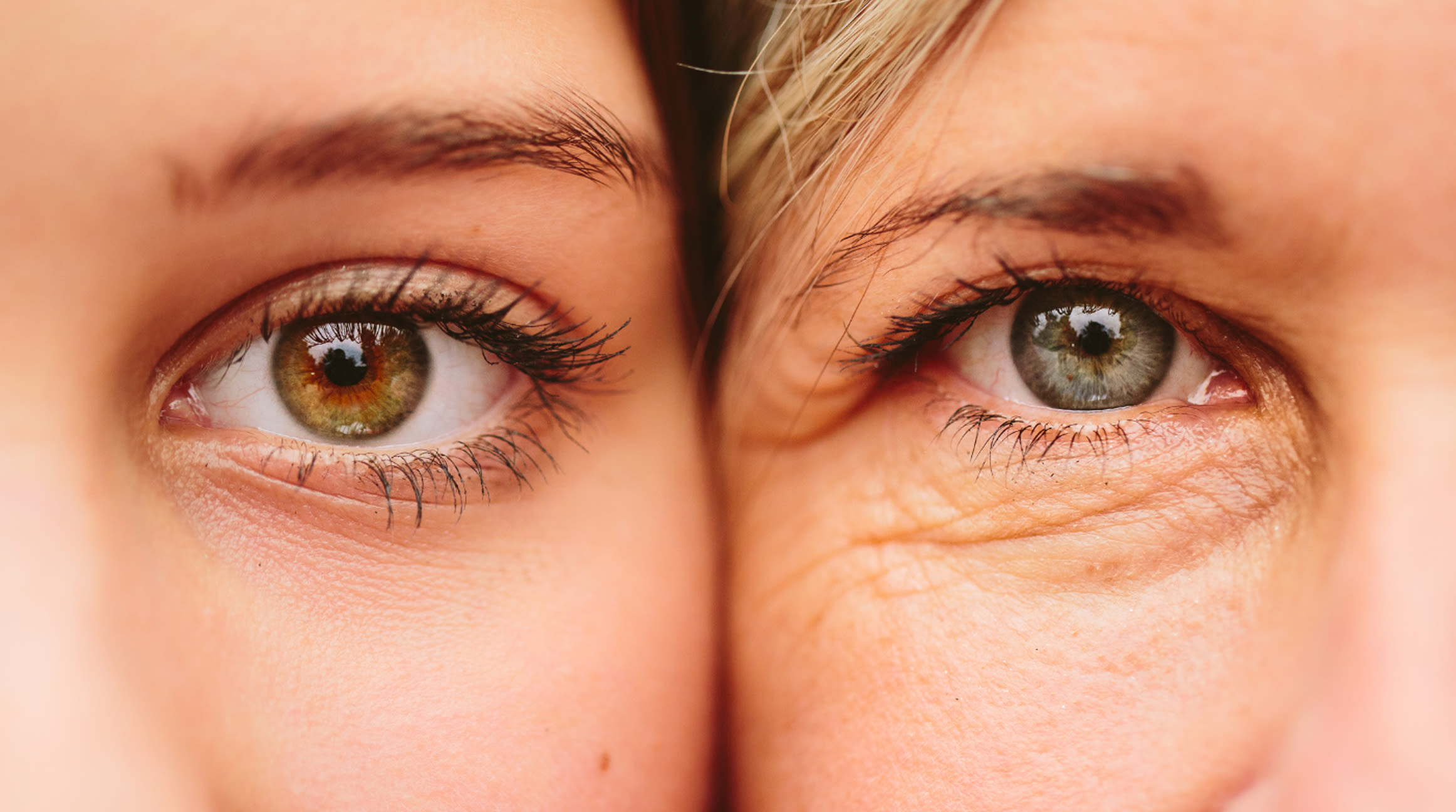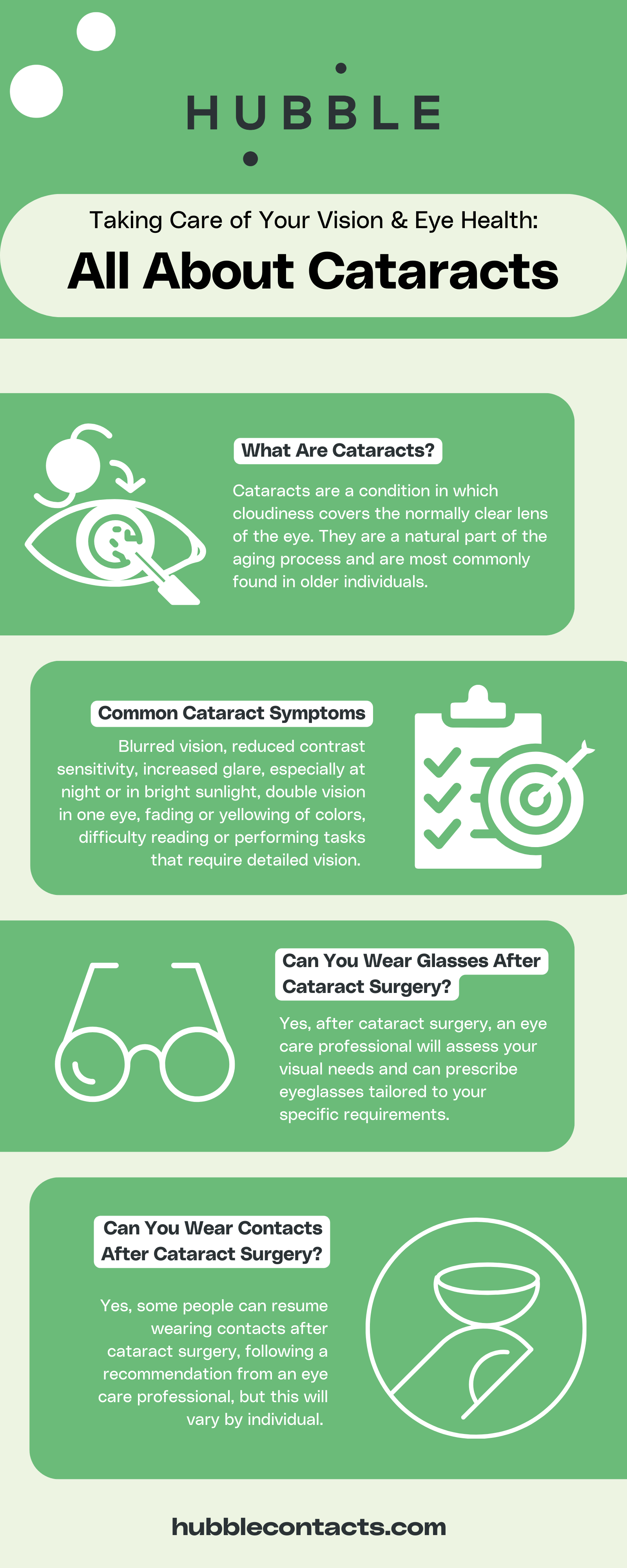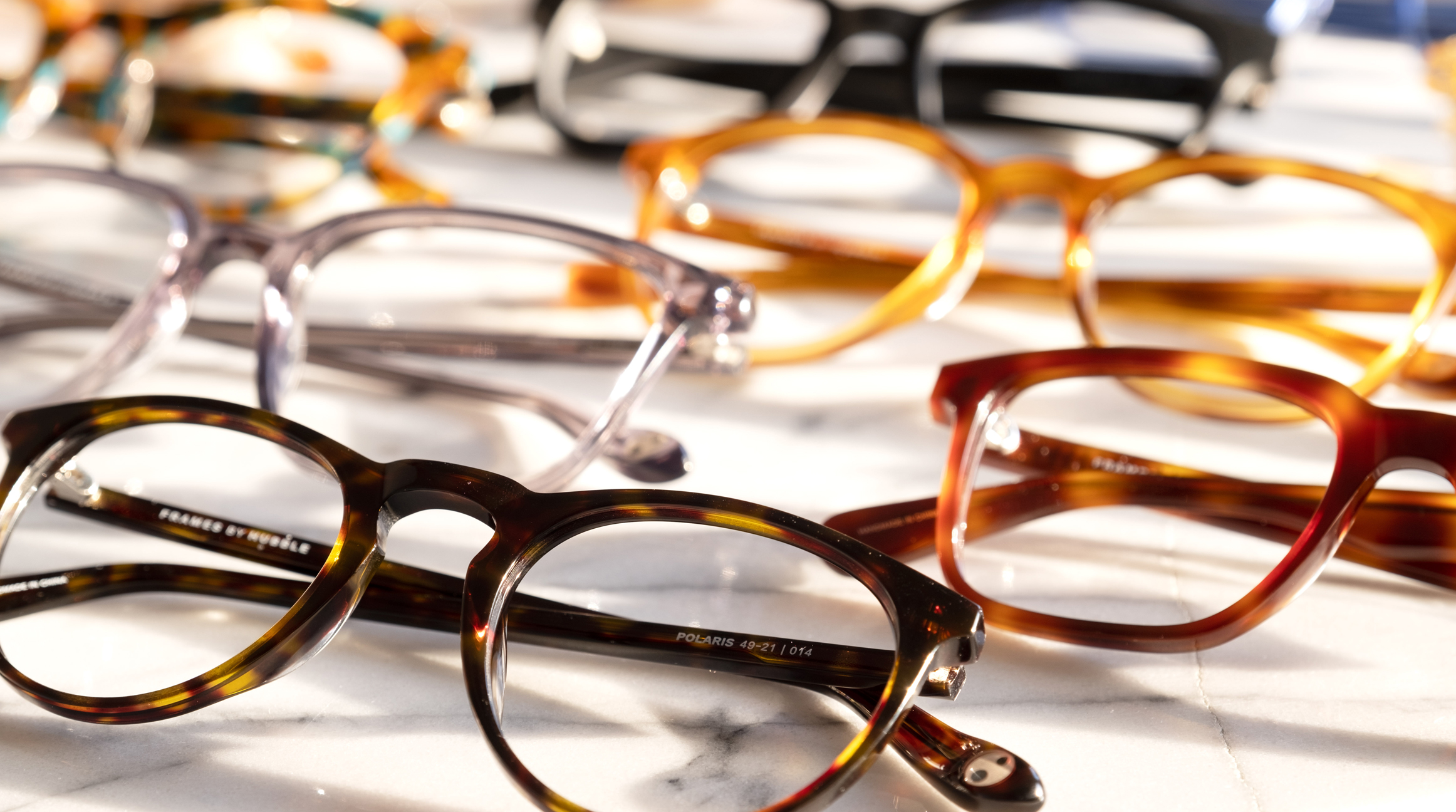What are Cataracts and How Do They Affect Glasses or Contact Lens Use?

What are Cataracts and How Do They Affect Glasses or Contact Lens Use?
Cataracts are one of the most common vision-related medical conditions, making it vitally important to understand how they affect your eye health and eyeglass & contact lens usage. You might have questions about how cataracts can affect your vision, and can you wear contacts after cataract surgery or glasses after cataract surgery.
This blog will help you gain an understanding of cataracts and how to manage your eyewear needs throughout your journey, from diagnosis to treatment.
The information provided in this blog post is for general informational purposes only and is not intended to be medical advice or a substitute for professional healthcare consultation. Always seek the advice of your qualified physician, optometrist, or healthcare provider with any questions you may have regarding a medical condition or treatment.
Understanding Cataracts
Cataracts are a condition where cloudiness covers the normally clear lens of the eye. For people with cataracts, vision is like viewing through cloudy lenses or looking through a foggy window. Colors will appear faded and vision is typically very poor at night. Lights appear too bright and you may see halos around the lights. Cataract symptoms can vary in severity and may develop gradually over time.
What Are Cataracts?
The natural lens of the eye is normally clear and is responsible for focusing light onto the retina at the back of the eye, which allows us to see sharp and clear images. However, when cataracts develop, this lens becomes cloudy, which can lead to a range of vision problems.
Cataracts are a natural part of the aging process and are most commonly found in older individuals. However, they can also develop due to other factors, such as injury, certain medications, or underlying medical conditions.
Your eyes, vision, and contract awareness are important aspects of your overall health. To maintain your vision and eye well-being, there are measures you can take that can mitigate vision problems, vision loss, or eye diseases.
Common Cataract Symptoms
It's important to note that cataracts typically develop slowly, so you may not notice these changes in your vision right away. However, if you experience symptoms, especially if they interfere with your daily activities, it's crucial to schedule an eye examination with an optometrist or ophthalmologist. Early detection and appropriate treatment, often in the form of cataract surgery, can help restore clear vision and improve your quality of life.
As the cataract continues to develop, it can cause symptoms such as blurred vision, reduced contrast sensitivity (difficulty distinguishing between shades of gray), increased glare, especially when driving at night or in bright sunlight, double vision in one eye, fading or yellowing of colors, difficulty reading or performing tasks that require detailed vision.
The primary treatment for cataracts is surgical removal. Cataract surgery is a highly successful and common procedure in which the cloudy natural lens is replaced with an artificial intraocular lens (IOL). This surgery can significantly improve a person's vision and quality of life. If you suspect you have cataracts or are experiencing changes in your vision, it is essential to consult an eye care professional for a comprehensive eye examination and appropriate guidance on treatment options.

Glasses After Cataract Surgery
You can wear eyeglasses after cataract surgery. Eyeglasses are often prescribed to help achieve the best possible vision following cataract surgery. After cataract surgery, an eye care professional will assess your visual needs and prescribe eyeglasses tailored to your specific requirements. This prescription may be for distance vision, reading, or a combination of both, depending on your lifestyle and any remaining refractive errors.
Accurate measurements contribute to the overall comfort of your glasses. They ensure that the frame doesn't pinch or slip off your nose. Your eye care professional can help in selecting frames that suit your facial features. This can make a significant difference in long-term wearability and durability. Poorly fitting glasses can cause discomfort, pressure points, and even headaches. Your eyeglass prescription may need to be adjusted in the weeks and months following cataract surgery as your eyes continue to heal and stabilize. Regular follow-up visits with your eye care professional will help ensure that your eyeglasses provide optimal vision correction.
After cataract surgery, your eyes may become more sensitive to bright light. Wearing sunglasses with proper UV protection is important to shield your eyes from harmful UV rays and glare. If you have astigmatism which is a common refractive error, your eye doctor may prescribe eyeglasses with a toric lens design to correct this astigmatism and provide clearer vision.
Can You Wear Contacts After Cataract Surgery?
Yes, many people can resume wearing contacts after cataract surgery, following a recommendation from a physician, but this will vary by individual.
It's important to remember that contact lens use after cataract surgery may not be suitable for everyone. Your circumstances, eye health, and visual needs will determine the feasibility of contact lenses. Continue to have regular eye check-ups with your eye care professional. Regular monitoring is crucial to ensure the health of your eyes and the success of your cataract surgery.
The timing of when you can resume wearing contact lenses after cataract surgery may vary depending on the type of surgery, your healing process, and your surgeon's recommendations. In most cases, it's recommended to wait until your eyes have fully healed, which can take several weeks to a few months.
The type of intraocular lens (IOL) implanted during cataract surgery can affect your ability to wear contact lenses. Monofocal IOLs, which are designed to provide clear vision at one distance (usually distance vision), may require the use of contact lenses for near vision correction. Multifocal or accommodating IOLs aim to reduce the need for glasses or contacts.
Remember to always adhere to strict hygiene practices when handling and caring for your contact lenses. Wash your hands thoroughly before inserting or removing lenses, and follow the recommended cleaning and disinfection routines for your specific type of contact lenses.
Do not overwear your contact lenses. Follow the prescribed wearing schedule and replace them as recommended by your eye care professional.
Post-cataract surgery, some individuals may experience dry eye symptoms. Lubricating eye drops may be necessary to alleviate discomfort and ensure the comfort of contact lens wear.
Pay close attention to any signs of discomfort, redness, irritation, or vision changes. If you experience any of these symptoms, remove your contact lenses immediately and consult your eye care professional.
Take Care of Your Vision with Hubble
Whether you're considering cataract surgery or have already undergone the procedure, managing your eyewear needs effectively is crucial. Stay informed, seek professional guidance when needed, and continue enjoying optimal vision.
With Hubble, you can find accessible and affordable optical solutions for you including Frames by Hubble eyeglasses and our range of daily disposable contact lenses, including Classic by Hubble, Hydro by Hubble, and the all-new SkyHy by Hubble.
All of Hubble’s products are designed with your comfort in mind. Our Frames by Hubble collection of eyeglasses features cellulose acetate frames derived from natural fibers and are handcrafted for each wearer's unique needs. Simply enter your prescription, and we’ll take care of the rest, shipping your eyeglasses directly to your door.

Our daily contact lens personalized subscription changed the way people receive and wear contacts, and we’ve expanded our contact lens offerings over the years to accommodate an even wider range of vision needs. Our Classic by Hubble contacts still start at just $1 for your first order and feature 55% water content, UV protection, and a thin edge, designed for easy insertion, all-day comfort, and crystal-clear vision. Comfortable and naturally hydrating Hydro by Hubble minimizes friction and maximizes comfort with ultra-thin edges, it comes in the world's slimmest eco-friendly packaging. The newest member of the Hubble family is SkyHy by Hubble. Our most breathable all-day wear lenses are made with silicone hydrogel for increased oxygen permeability and breathability.

When it comes to taking care of your comprehensive vision needs, you simply can’t go wrong with Hubble!


